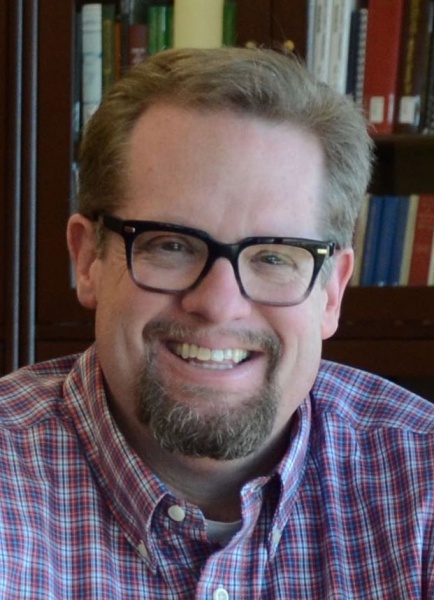When Mitt Romney named Paul Ryan as his running mate for the GOP presidential ticket, Mr. Romney made sure that this fall’s election would be historic on a variety of levels. While many are focusing on the economic gravitas that Rep. Ryan brings to the race, others are noting the religious variety apparent at the top of each major party’s ticket. Mitt Romney is a Mormon, President Obama is a mainline Protestant, and the vice-presidential nominees – Ryan and Joe Biden – share a common bond as professing Roman Catholics. Commentators are already busy parsing the partisan divide between the co-religionists Biden and Ryan, but having Roman Catholics represented in such prominent positions in this campaign and particularly in tonight's debate is also likely to catapult another player into the national political consciousness: Catholic social teaching (CST).
For people of faith, and even for people of no particular faith whatsoever, CST represents a praiseworthy model for responsible civil engagement in a diverse and plural culture. The tradition of social encyclicals was inaugurated just over 120 years ago with the promulgation of Rerum Novarum (Of the New Things) by Pope Leo XIII, which focused on the problem of poverty and social upheaval in the aftermath of the Industrial Revolution. This encyclical ushered in an era of sustained and substantive reflection on the social implications of the Catholic faith in the modern world, continued by a long line of noteworthy publications, papers, books, conferences, and debates. The most recent social encyclical appeared from the current bishop of Rome, Pope Benedict XVI, in 2009 under the title Caritas in Veritate (Charity in Truth), which deals with (among other things) the challenges and opportunities of globalization and economic and political instability.
A hallmark of Catholic social teaching, and the social encyclicals together, is a characteristically Roman Catholic approach to natural law (inspired largely by Thomas Aquinas), which judges positive law (the promulgated law of the land) by unchanging norms of human behavior, accessible to natural reason and revealed by God. It is this type of reasoning that Martin Luther King Jr. used to devastating effect in his "Letter from Birmingham Jail." He repeatedly noted that the regimes that make law can do so with justice or without it, which means that mere obedience of the law is not necessarily virtuous. One must make a larger judgment about right and wrong, and the recognition of higher law in CST is an important witness to this objective moral order. There were conservatives who resisted the power of this reasoning when the issue was racial inequality. There are liberals who blind their eyes to it in the face of the millions of abortions that continue to shock the conscience since Roe v. Wade.
We write as Protestants (a Baptist political scholar and a Reformed moral theologian, respectively) in praise of Catholic social teaching. There are several areas of CST which are directly applicable to issues at stake in this election.
Considering Biden and Ryan together, we might immediately contemplate two concepts that have been part of the social teaching of the church: the principles of solidarity and subsidiarity. Catholics on the Left sometimes translate solidarity and a preferential option for the poor (a requirement that Christians stand up with and for those who live in society’s margins) into forms of massive social programs backed by the power of redistribution. But these concepts do not automatically put the seal of church authority on statist collective action. Instead, solidarity and the preferential option for the poor should be seen in the context of subsidiarity, which respects the dignity and responsibility of institutions and individuals of lesser standing relative to that of higher or more powerful organizations. Subsidiarity teaches that individuals and local communities ought order their affairs so as to render much more direct, individual, and accountable assistance to the poor without creating a system of initiative-wrecking entitlement and dependency.
Another area of Catholic social teaching to gain prominence in this election year has been religious liberty. During the last century, the church recovered its older and better traditions of religious freedom that had fallen by the wayside in the long era of European Christendom. In a year when the administration has tended toward an Erastian (or even Napoleonic) view in which the state dominates the church, the American bishops have vigorously contended for the liberty of the church and its members in matters of religious practice affected by the HHS mandate. Vice President Biden may have resisted issuance of the mandate privately. Congressman Ryan is one of many Catholics who have vocally opposed it publicly in the name of protecting religious liberty and freedom of conscience.
To the extent that the social teachings of the Roman Catholic Church reflect truth about the human person and society, they represent a boon to our broader social life, as well as a challenge for other traditions to think as deeply and responsibly about the social implications of our respective faiths. The American political scene is better off for having Catholic social teaching, and faithful Catholics, involved in the public square. Tonight is an excellent opportunity to appreciate the valuable legacy that Christian convictions have exercised in our common life, and we can expect that the Roman Catholic Church's teaching on social matters will garner some substantive attention this evening and beyond. We have good reason to hope, then, that no matter which party claims victory in this November’s election, that the inclusion of Catholic Social Teaching in our national political conversations will be a blessing to us all.














